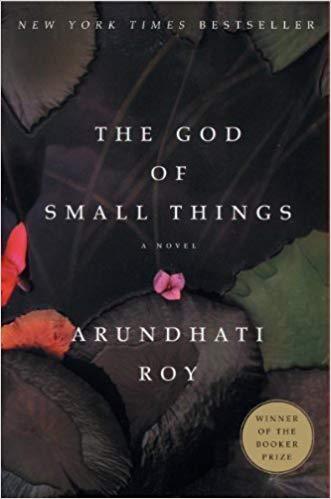5. A book written in South Asia: The God of Small Things by Arundhati Roy

List Progress: 24/30
When I finished The God of Small Things and I tried to think of a good sum-up for my feelings, one quickly popped into my head: that was a very profound experience that I didn’t enjoy very much. Arundhati Roy’s award-winning 1997 debut novel is powerful, visceral (very visceral), and captures incredible emotions and experiences. And it just didn’t do it for me.
The God of Small Things follows twins Rahel and Estha back and forth from a traumatic event in their childhoods to their empty, wandering adulthoods, and paints a rich picture of the generations of pain and trauma around them which they were swept up in. Their divorced and rejected mother, their factory-owner uncle, their failed-nun great-aunt, and a young Untouchable factory worker all have their own stories woven out and told in rich detail, and Roy really is a master of painting lush paintings of people’s lives and experiences. But the actual plot of the novel is so short, built around a few singular events, that a lot of narrative twisting and undulating had to be fit in in order to make it last a whole book.
I am strangely enough reminded of the Matt Fraction comic series Sex Criminals, which is so good at introducing new characters that it doesn’t focus on much else. Even near the end of the novel, new backstories are still being told because it is what The God of Small Things does best, but by that point I was more than a little impatient. What starts out as beautiful prose gets cloying after 300 pages of very vivid, very squishy detail. If you want vivid descriptions of every humid smell and texture of every natural substance in a scene, this is the book for you. It is also a book containing a very detailed child molestation scene (which is not the traumatic event at the center of the story, but one of the aspects leading to it), so if you have a sensitivity to that topic, avoid this novel.
A lot of what I disliked about The God of Small Things is probably the point of the book. It is literally about the “small things” that come together to make up the huge events. And perhaps in a shorter book, I could have appreciated that more, but as is, this became a slog through ugliness by the end. A beautifully rendered slog, but not one I will be eager to go through again.
Would I Recommend It: Not really if you have my tastes, but I could see this book finding its right audience.